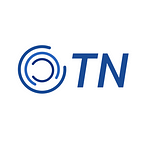A couple of weeks ago, Ghana’s central bank, Bank Of Ghana (BOG) stated that they are ready to pilot their “E-Cedi” digital currency.
Nigeria has also stated that they are gearing up to pilot their own digital currency, the “E-Naira” soon.
So what exactly is a “digital currency” and what makes it so unique? Why are most central banks in the UK, France, China, and other central banks testing these currencies?
Here’s so what you need to know about digital currencies and why they are so trendy in the news these day:
What Is A Digital Currency?
First and foremost, a digital currency is a form of currency that is available only in digital or electronic form, and not in physical form. Digital currencies can only be owned and transacted by using computers or electronic wallets connected to the Internet or designated networks.
Just like physical currency, digital currencies can be used to purchase goods as well as to pay for services.
Is Digital Currency “Crypto”?
There are some differences between central bank digital currencies and cryptocurrencies.
If the digital currency is issued by a central bank of a country in a regulated form, it is formally called “Central Bank Digital Currency (CBDC).”
There are other cryptocurrencies like Bitcoin and Etherium but they are unregulated by any central bank and can be very volatile.
Definitions:
Digital Currencies
Regulated or unregulated currency that is available only in a digital or electronic form.
Cryptocurrencies
A virtual currency that uses cryptography to secure and verify transactions as well as to manage and control the creation of new currency units. Eg Bitcoin and Etherium.
Are Digital Currencies New?
The concept of digital currencies has started to become a bit more trendy in the last couple of months.
China is currently testing its own digital currency called “Digital Yuan“, which would start replacing cash. One of the reasons China wants to go digital with its currency is because of a “pressing need to digitalize cash and coin” as producing and storing these currently is expensive, according to a Chinese spokesperson from their central bank.
The UK is also exploring its own digital currency which has been dubbed “Britcoin“. The UK central bank said the new currency would be a new form of digital money for use by households and businesses and would exist alongside cash and bank deposits, rather than replacing them.
Advantages Of Digital Currencies
There are numerous advantages that come with the introduction of digital currency. Central banks would have increased control over money issuance and greater insight into how people spend their money once they start issuing digital currencies to the populace.
The cost of digital currencies is low and almost zero, especially in their creation and distribution.
Digital currencies can also enhance financial inclusion because consumers can hold these currencies through means like their mobile devices and would not be required to have bank accounts (Similar to Mobile Money).
Digital Currencies could also significantly enhance the development of monetary policies in a country.
How Would The Ghana “E-Cedi” Work?
Currently, Ghana is still cash-heavy but the rise of mobile money is effectively turning Ghana more and more into a cashless society. As of January 2021, 38.9 percent of the Ghanaian population aged 15 years and older had a mobile money account in Ghana (Statista) and mobile money transactions are expected to surpass $3 billion a day by the end of 2022. (GSMA)
The Bank of Ghana hasn’t formally stated how the E-Cedi currency would work but it could emulate the Chinese way whereby the central bank could distribute the E-Cedi to commercial banks. The banks will be responsible for getting the currency into the hands of consumers. Banks could have a service whereby consumers can exchange physical cash for the E-Cedi currency.
Consumers could spend their E-Cedi through a shortcode like Mobile Money or could integrate with third-party fintechs to make payments with the new currency.
Once the Bank of Ghana starts piloting the E-Cedi later in the year, it will be become clearer on what forms it will take and how it could eventually help with the transformation of Ghana into a more cashless society.
Story originally published on Tech Nova
